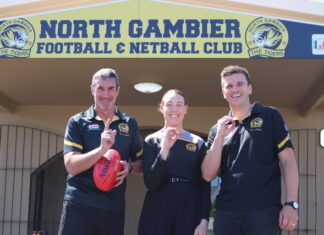Nicknames are fun ways to recognize us, by referring to our family, background, appearance, skills, work, habits, hobbies, or even our names.
For obvious reasons, I was given “Meataxe” as a kid, but some nicknames take opposite paths – like “Shorty” for tall people, or “Bluey” for redheads.
Until containers revolutionized international trade, cargo ships were handled manually, with cranes only being used for larger goods. And before Melbourne became Australia’s largest container port, waterside workers’ nicknames reflected their performance – or lack of it.
They included “Blisters,” who developed a reputation for only being seen after the work was done.
“The Judge” was famous for sitting on a case all day.
“The London Fog” would never lift, but “Hydraulic Jack” would ‘lift’ anything in sight if he saw money-making opportunities for it away from the docks.
More recently, when an ocean racing yacht was lengthened so it could compete with the speed of the hundred-foot monsters in the Sydney to Hobart event, the owner quickly learned that his pride and joy had been christened “Boatox!”
Super self-important people will be given negative nicknames, but not to their faces, as their overreaction to discovering such names may unearth heavy duty pain for all concerned.
Though nicknames might add to our recognition, they can’t define our character or our reputation.
We all have God-given freedom to change direction, as James and John, two brothers from among Jesus’ disciples, discovered after a heated moment.
They had wanted fire from heaven to destroy a small town which refused to welcome them, but judgement was furthest from Jesus’ mind.
He nicknamed them “Boanerges” (or “Thunder Brothers”) for he wanted them to learn that grace would always be his first option.
From then on, they found this grace ushering them towards major personal changes, and as they followed him and his teaching, they experienced some miraculous events…
James later became a key leader in the church in Jerusalem, while John was inspired to record Jesus’ teaching and ministry in a gospel that revealed his power and authority, and so much love that he was willing to take the ultimate judgement for the world’s sins on himself.
This was so that regardless of where we’re from, who we are, or whatever our nickname might be, ordinary people like us may accept his offer of a new start and share the freedom of his acceptance and forgiveness.
Noel Mitaxa
On behalf of a church near you,
Inviting you to explore God’s love.








